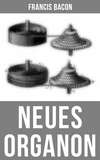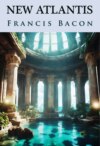Читать книгу: «New Atlantis»
Titel: New Atlantis
von ca. 337-422 Faxian, Sir Samuel White Baker, Sax Rohmer, Bernardin de Saint-Pierre, Maria Edgeworth, Saint Sir Thomas More, Herodotus, L. Mühlbach, Herbert Allen Giles, G. K. Chesterton, Algernon Charles Swinburne, Rudyard Kipling, A. J. O'Reilly, William Bray, O. Henry, graf Leo Tolstoy, Anonymous, Lewis Wallace, Johann Wolfgang von Goethe, Edgar Allan Poe, Jack London, Elizabeth Cleghorn Gaskell, Jules Verne, Frank Frankfort Moore, Susan Fenimore Cooper, Anthony Trollope, Henry James, T. Smollett, Thomas Burke, Emma Goldman, George Eliot, Henry Rider Haggard, Baron Thomas Babington Macaulay Macaulay, A. Maynard Barbour, Edmund Burke, Gerold K. Rohner, Bernard Shaw, Sir Joshua Reynolds, Bret Harte, Nathaniel Hawthorne, Jerome K. Jerome, Isabella L. Bird, Christoph Martin Wieland, Rainer Maria Rilke, Ludwig Anzengruber, Freiherr von Ludwig Achim Arnim, G. Harvey Ralphson, John Galsworthy, George Sand, Pierre Loti, Fyodor Dostoyevsky, Giambattista Basile, Homer, John Webster, P. G. Wodehouse, William Shakespeare, Edward Payson Roe, Sir Walter Raleigh, Victor [pseud.] Appleton, Arnold Bennett, James Fenimore Cooper, James Hogg, Richard Harding Davis, Ernest Thompson Seton, William MacLeod Raine, E. Phillips Oppenheim, Maksim Gorky, Henrik Ibsen, George MacDonald, Sir Max Beerbohm, Lucy Larcom, Various, Sir Robert S. Ball, Charles Darwin, Charles Reade, Adelaide Anne Procter, Joseph Conrad, Joel Chandler Harris, Joseph Crosby Lincoln, Alexander Whyte, Kate Douglas Smith Wiggin, James Lane Allen, Richard Jefferies, Honoré de Balzac, Wilhelm Busch, General Robert Edward Lee, Charles Dickens, Wilkie Collins, David Cory, Booth Tarkington, George Rawlinson, Sir Arthur Conan Doyle, Dinah Maria Mulock Craik, Christopher Evans, Thomas Henry Huxley, Mary Roberts Rinehart, Erskine Childers, Alice Freeman Palmer, Florence Converse, William Congreve, Stephen Crane, Madame de La Fayette, United States. Army. Corps of Engineers. Manhattan District, Willa Sibert Cather, Anna Katharine Green, Oliver Wendell Holmes, Charlotte M. Brame, Alphonse Daudet, Booker T. Washington, Clemens Brentano, Sylvester Mowry, Geoffrey Chaucer, Ellen Anderson Gholson Glasgow, Gail Hamilton, William Roscoe Thayer, Margaret Wade Campbell Deland, Rafael Sabatini, Archibald Henderson, Albert Payson Terhune, George Wharton James, Padraic Colum, James MacCaffrey, John Albert Macy, Annie Sullivan, Helen Keller, Walter Pater, Sir Richard Francis Burton, Baron de Jean-Baptiste-Antoine-Marcelin Marbot, Aristotle, Gustave Flaubert, 12th cent. de Troyes Chrétien, Valentine Williams, Thomas Wentworth Higginson, Alexandre Dumas fils, John Gay, Andrew Lang, Hester Lynch Piozzi, Jeffery Farnol, Alexander Pope, George Henry Borrow, Mark Twain, Francis Bacon
ISBN 978-3-7429-2341-7
Alle Rechte vorbehalten.
Es ist ohne vorherige schriftliche Erlaubnis nicht gestattet, dieses Werk im Ganzen oder in Teilen zu vervielfältigen oder zu veröffentlichen.
THE NEW ATLANTIS
BY
SIR FRANCIS BACON
INTRODUCTORY NOTE
Bacon's literary executor, Dr. Rowley, published "The New Atlantis" in 1627, the year after the author's death. It seems to have been written about 1623, during that period of literary activity which followed Bacon's political fall. None of Bacon's writings gives in short apace so vivid a picture of his tastes and aspirations as this fragment of the plan of an ideal commonwealth. The generosity and enlightenment, the dignity and splendor, the piety and public spirit, of the inhabitants of Bensalem represent the ideal qualities which Bacon the statesman desired rather than hoped to see characteristic of his own country; and in Solomon's House we have Bacon the scientist indulging without restriction his prophetic vision of the future of human knowledge. No reader acquainted in any degree with the processes and results of modern scientific inquiry can fail to be struck by the numerous approximations made by Bacon's imagination to the actual achievements of modern times. The plan and organization of his great college lay down the main lines of the modern research university; and both in pure and applied science he anticipates a strikingly large number of recent inventions and discoveries. In still another way is "The New Atlantis" typical of Bacon's attitude. In spite of the enthusiastic and broad-minded schemes he laid down for the pursuit of truth, Bacon always had an eye to utility. The advancement of science which he sought was conceived by him as a means to a practical end the increase of man's control over nature, and the comfort and convenience of humanity. For pure metaphysics, or any form of abstract thinking that yielded no "fruit," he had little interest; and this leaning to the useful is shown in the practical applications of the discoveries made by the scholars of Solomon's House. Nor does the interest of the work stop here. It contains much, both in its political and in its scientific ideals, that we have as yet by no means achieved, but which contain valuable elements of suggestion and stimulus for the future.
THE NEW ATLANTIS
We sailed from Peru, (where we had continued for the space of one whole year) for China and Japan, by the South Sea; taking with us victuals for twelve months; and had good winds from the east, though soft and weak, for five months space, and more. But the wind came about, and settled in the west for many days, so as we could make little or no way, and were sometime in purpose to turn back. But then again there arose strong and great winds from the south, with a point east, which carried us up (for all that we could do) towards the north; by which time our victuals failed us, though we had made good spare of them. So that finding ourselves, in the midst of the greatest wilderness of waters in the world, without victuals, we gave ourselves for lost men and prepared for death. Yet we did lift up our hearts and voices to God above, who showeth his wonders in the deep, beseeching him of his mercy, that as in the beginning he discovered the face of the deep, and brought forth dry land, so he would now discover land to us, that we might not perish.
And it came to pass that the next day about evening we saw within a kenning before us, towards the north, as it were thick clouds, which did put us in some hope of land; knowing how that part of the South Sea was utterly unknown; and might have islands, or continents, that hitherto were not come to light. Wherefore we bent our course thither, where we saw the appearance of land, all that night; and in the dawning of the next day, we might plainly discern that it was a land; flat to our sight, and full of boscage; which made it show the more dark. And after an hour and a half's sailing, we entered into a good haven, being the port of a fair city; not great indeed, but well built, and that gave a pleasant view from the sea: and we thinking every minute long, till we were on land, came close to the shore, and offered to land. But straightways we saw divers of the people, with bastons in their hands (as it were) forbidding us to land; yet without any cries of fierceness, but only as warning us off, by signs that they made. Whereupon being not a little discomforted, we were advising with ourselves, what we should do.
During which time, there made forth to us a small boat, with about eight persons in it; whereof one of them had in his hand a tipstaff of a yellow cane, tipped at both ends with blue, who came aboard our ship, without any show of distrust at all. And when he saw one of our number, present himself somewhat before the rest, he drew forth a little scroll of parchment (somewhat yellower than our parchment, and shining like the leaves of writing tables, but otherwise soft and flexible,) and delivered it to our foremost man. In which scroll were written in ancient Hebrew, and in ancient Greek, and in good Latin of the school, and in Spanish, these words: Land ye not, none of you; and provide to be gone from this coast, within sixteen days, except you have further time given you. Meanwhile, if you want fresh water or victuals, or help for your sick, or that your ship needeth repairs, write down your wants, and you shall have that, which belongeth to mercy. This scroll was signed with a stamp of cherubim: wings, not spread, but hanging downwards; and by them a cross. This being delivered, the officer returned, and left only a servant with us to receive our answer.
Consulting hereupon amongst ourselves, we were much perplexed. The denial of landing and hasty warning us away troubled us much; on the other side, to find that the people had languages, and were so full of humanity, did comfort us not a little. And above all, the sign of the cross to that instrument was to us a great rejoicing, and as it were a certain presage of good. Our answer was in the Spanish tongue; that for our ship, it was well; for we had rather met with calms and contrary winds than any tempests. For our sick, they were many, and in very ill case; so that if they were not permitted to land, they ran danger of their lives. Our other wants we set down in particular; adding, That we had some little store of merchandise, which if it pleased them to deal for, it might supply our wants, without being chargeable unto them. We offered some reward in pistolets unto the servant, and a piece of crimson velvet to be presented to the officer; but the servant took them not, nor would scarce look upon them; and so left us, and went back in another little boat, which was sent for him.
About three hours after we had dispatched our answer, there came towards us a person (as it seemed) of place. He had on him a gown with wide sleeves, of a kind of water chamolet, of an excellent azure colour, fair more glossy than ours; his under apparel was green; and so was his hat, being in the form of a turban, daintily made, and not so huge as the Turkish turbans; and the locks of his hair came down below the brims of it. A reverend man was he to behold. He came in a boat, gilt in some part of it, with four persons more only in that boat; and was followed by another boat, wherein were some twenty. When he was come within a flightshot of our ship, signs were made to us, that we should send forth some to meet him upon the water; which we presently did in our ship-boat, sending the principal man amongst us save one, and four of our number with him.
When we were come within six yards of their boat, they called to us to stay, and not to approach farther; which we did. And thereupon the man, whom I before described, stood up, and with a loud voice, in Spanish, asked, "Are ye Christians?" We answered, "We were;" fearing the less, because of the cross we had seen in the subscription. At which answer the said person lifted up his right hand towards Heaven, and drew it softly to his mouth (which is the gesture they use, when they thank God;) and then said: "If ye will swear (all of you) by the merits of the Saviour, that ye are no pirates, nor have shed blood, lawfully, nor unlawfully within forty days past, you may have licence to come on land." We said, "We were all ready to take that oath." Whereupon one of those that were with him, being (as it seemed) a notary, made an entry of this act. Which done, another of the attendants of the great person which was with him in the same boat, after his Lord had spoken a little to him, said aloud: "My Lord would have you know, that it is not of pride, or greatness, that he cometh not aboard your ship; but for that in your answer you declare that you have many sick amongst you, he was warned by the Conservator of Health of the city that he should keep a distance." We bowed ourselves towards him, and answered, "We were his humble servants; and accounted for great honour, and singular humanity towards us, that which was already done; but hoped well, that the nature of the sickness of our men was not infectious." So he returned; and a while after came the Notary to us aboard our ship; holding in his hand a fruit of that country, like an orange, but of color between orange-tawney and scarlet; which cast a most excellent odour. He used it (as it seemeth) for a preservative against infection. He gave us our oath; "By the name of Jesus, and his merits:" and after told us, that the next day, by six of the Clock, in the Morning, we should be sent to, and brought to the Strangers' House, (so he called it,) where we should be accommodated of things, both for our whole, and for our sick. So he left us; and when we offered him some pistolets, he smiling said, "He must not be twice paid for one labour:" meaning (as I take it) that he had salary sufficient of the State for his service. For (as I after learned) they call an officer that taketh rewards, "twice paid."
The next morning early, there came to us the same officer that came to us at first with his cane, and told us, He came to conduct us to the Strangers' House; and that he had prevented the hour, because we might have the whole day before us, for our business. "For," said he, "if you will follow my advice, there shall first go with me some few of you, and see the place, and how it may be made convenient for you; and then you may send for your sick, and the rest of your number, which ye will bring on land." We thanked him, and said, "That this care, which he took of desolate strangers, God would reward." And so six of us went on land with him: and when we were on land, he went before us, and turned to us, and said, "He was but our servant, and our guide." He led us through three fair streets; and all the way we went, there were gathered some people on both sides, standing in a row; but in so civil a fashion, as if it had been, not to wonder at us, but to welcome us: and divers of them, as we passed by them, put their arms a little abroad; which is their gesture, when they did bid any welcome.
The Strangers' House is a fair and spacious house, built of brick, of somewhat a bluer colour than our brick; and with handsome windows, some of glass, some of a kind of cambric oiled. He brought us first into a fair parlour above stairs, and then asked us, "What number of persons we were? And how many sick?" We answered, "We were in all, (sick and whole,) one and fifty persons, whereof our sick were seventeen." He desired us to have patience a little, and to stay till he came back to us; which was about an hour after; and then he led us to see the chambers which were provided for us, being in number nineteen: they having cast it (as it seemeth) that four of those chambers, which were better than the rest, might receive four of the principal men of our company; and lodge them alone by themselves; and the other fifteen chambers were to lodge us two and two together. The chambers were handsome and cheerful chambers, and furnished civilly. Then he led us to a long gallery, like a dorture, where he showed us all along the one side (for the other side was but wall and window), seventeen cells, very neat ones, having partitions of cedar wood. Which gallery and cells, being in all forty, many more than we needed, were instituted as an infirmary for sick persons. And he told us withal, that as any of our sick waxed well, he might be removed from his cell, to a chamber; for which purpose there were set forth ten spare chambers, besides the number we spake of before. This done, he brought us back to the parlour, and lifting up his cane a little, (as they do when they give any charge or command) said to us, "Ye are to know, that the custom of the land requireth, that after this day and to-morrow, (which we give you for removing of your people from your ship,) you are to keep within doors for three days. But let it not trouble you, nor do not think yourselves restrained, but rather left to your rest and ease. You shall want nothing, and there are six of our people appointed to attend you, for any business you may have abroad." We gave him thanks, with all affection and respect, and said, "God surely is manifested in this land." We offered him also twenty pistolets; but he smiled, and only said; "What? twice paid!" And so he left us.
Бесплатный фрагмент закончился.





















